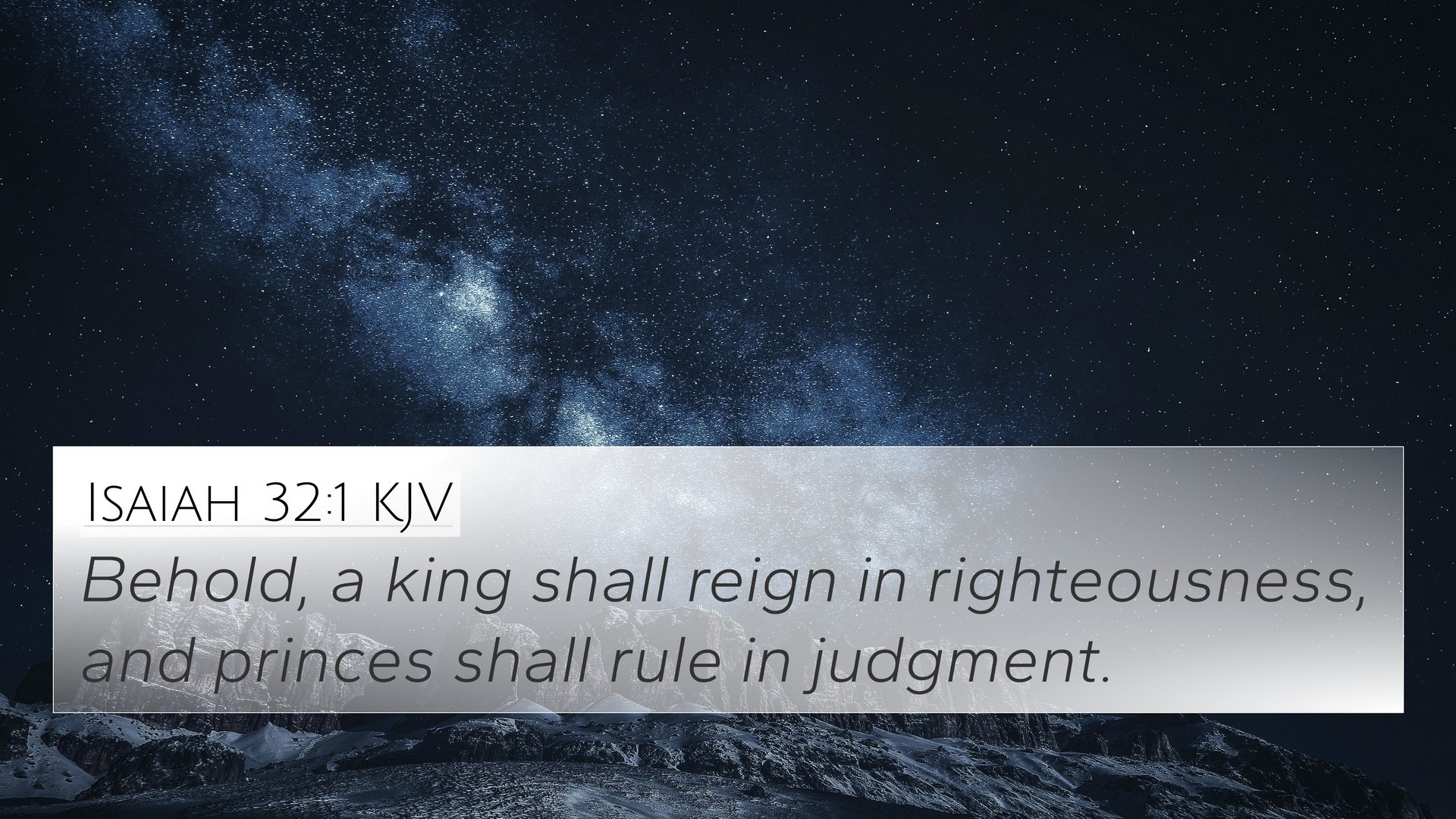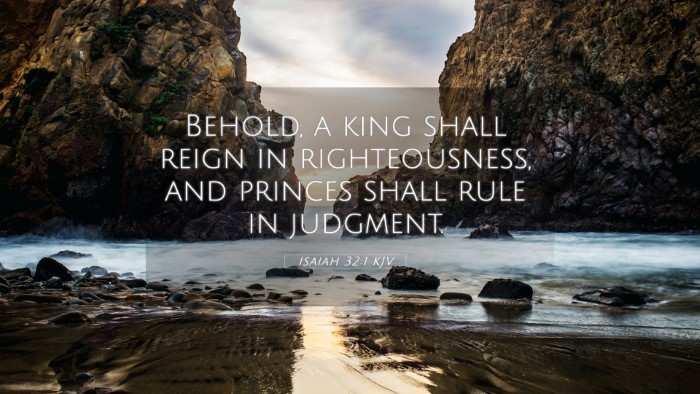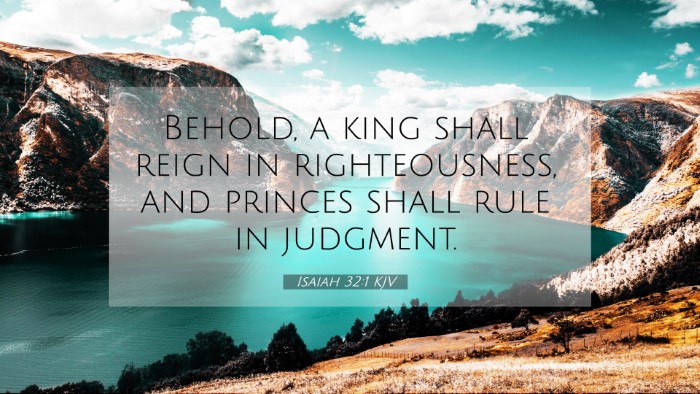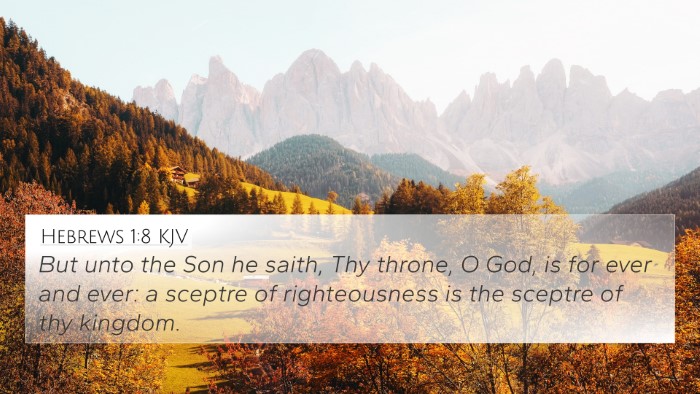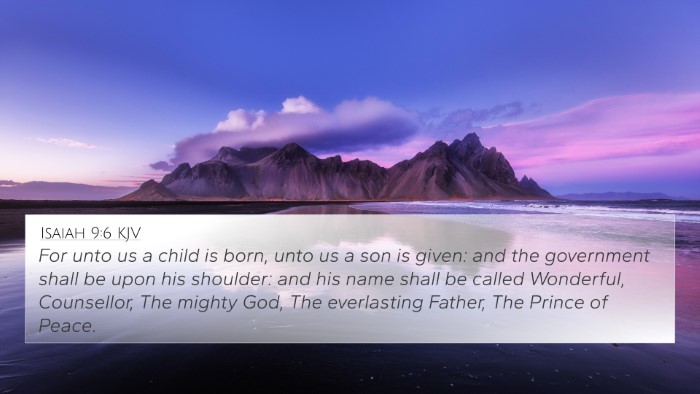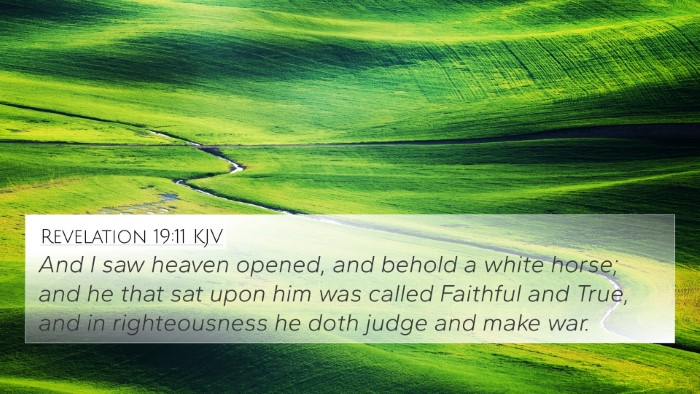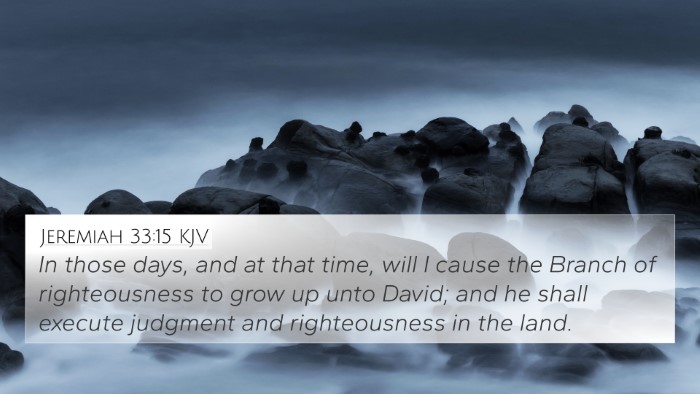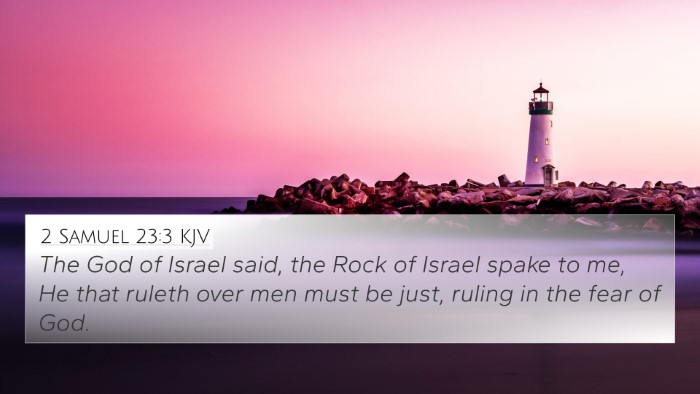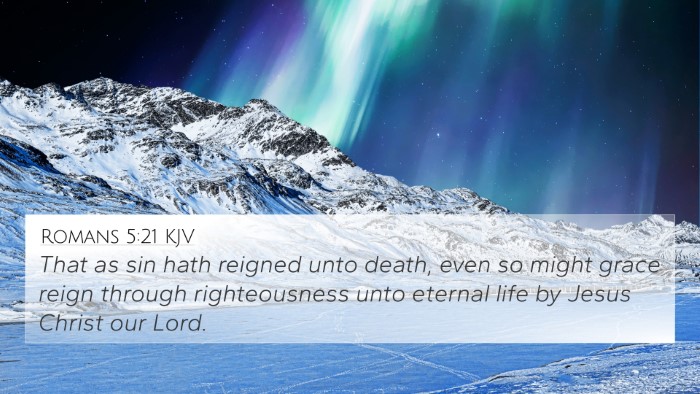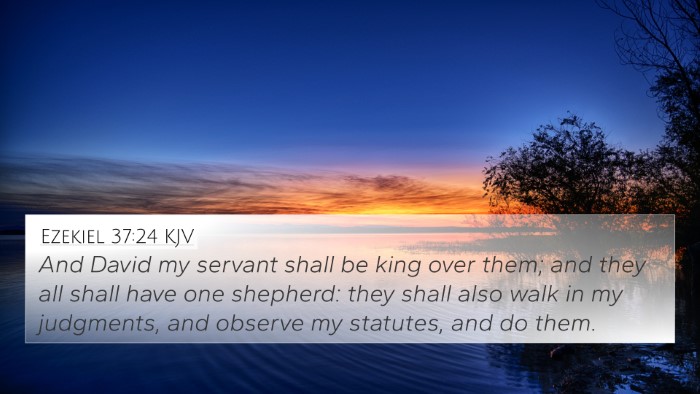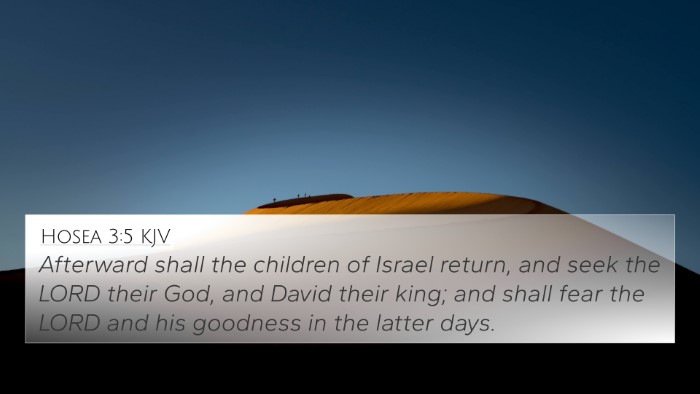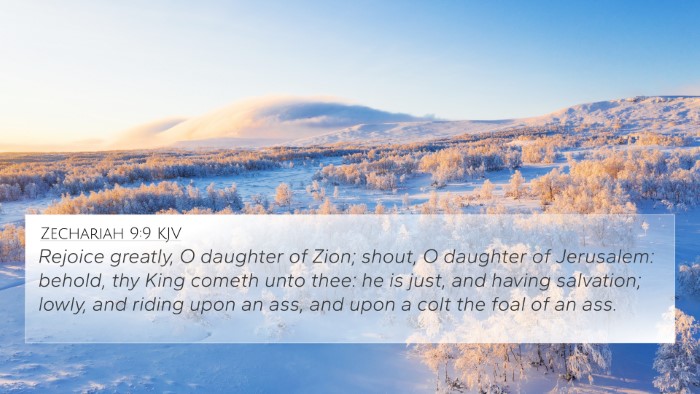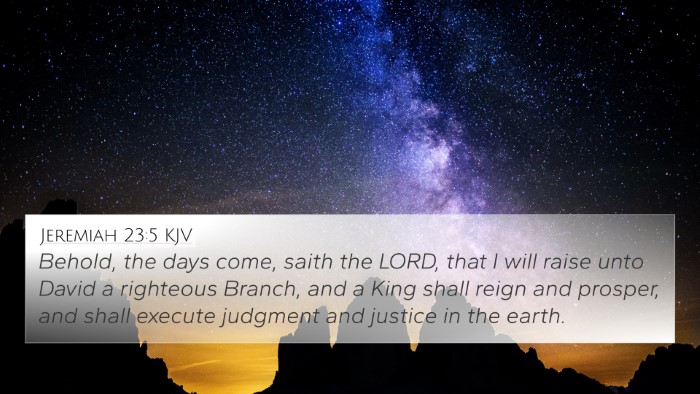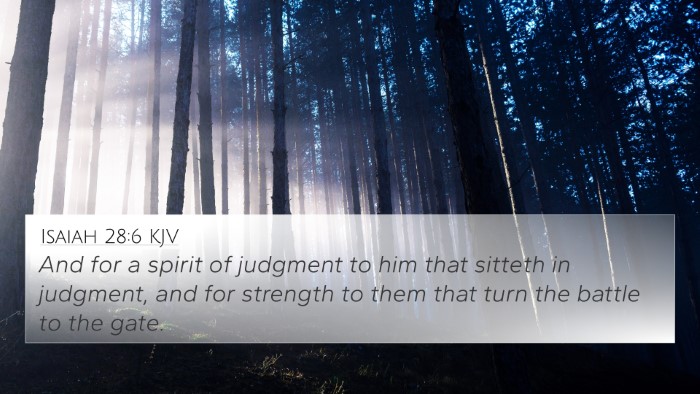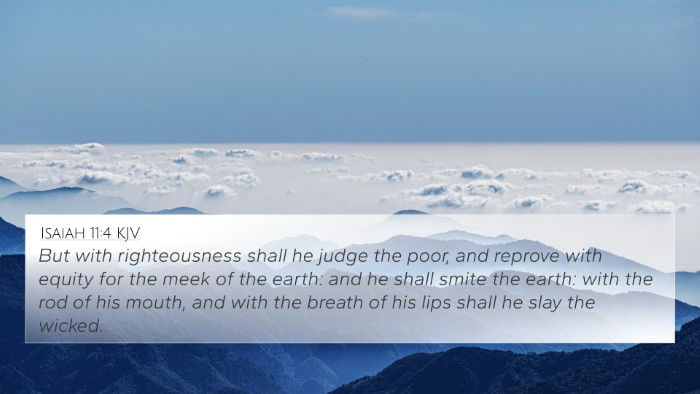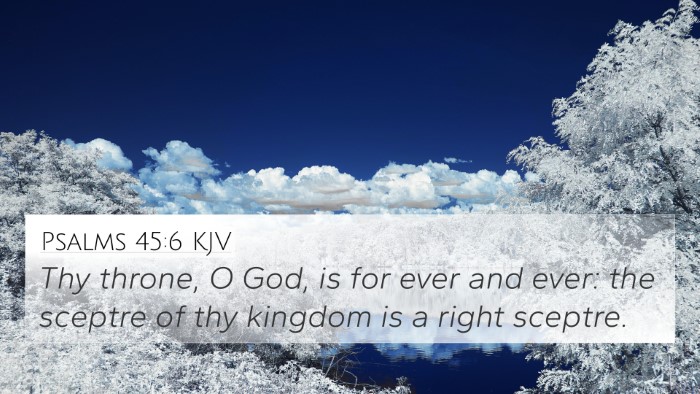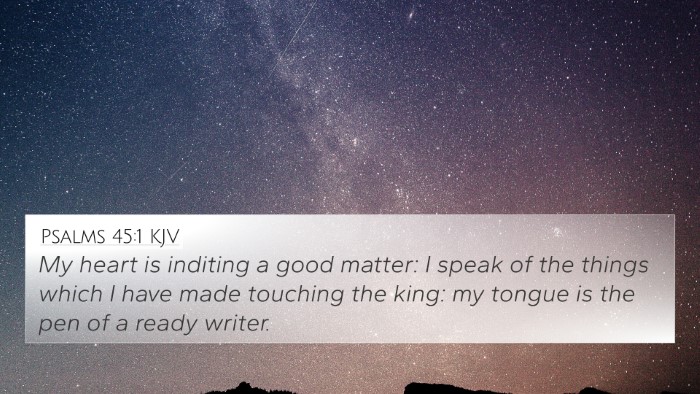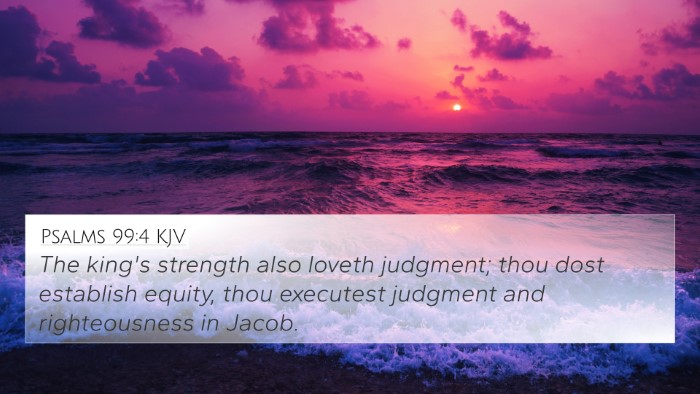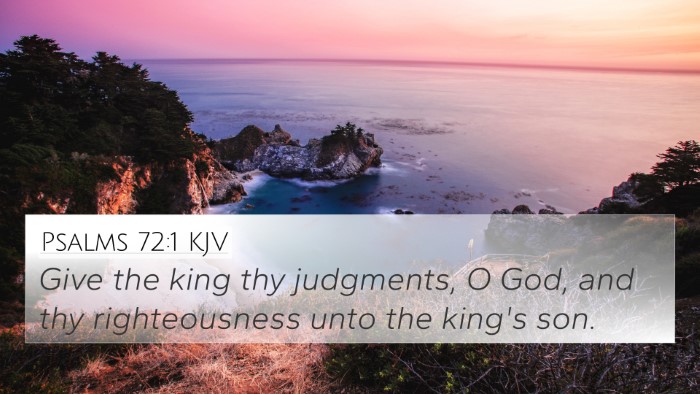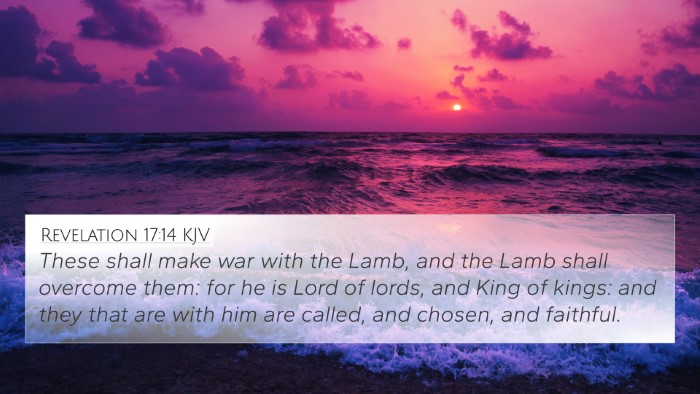Understanding Isaiah 32:1
Isaiah 32:1 states: "Behold, a king shall reign in righteousness, and princes shall rule in judgment." This verse speaks of a future time when a righteous king will govern, emphasizing the qualities of justice and righteousness that will characterize this reign.
Contextual Overview
The context of Isaiah 32 discusses God's promises and the coming of a righteous branch. The previous chapters detail the judgment against Israel’s leaders who have failed to lead with justice. In this verse, Isaiah foretells a time of restoration and order under a just ruler.
Commentary Insights
Matthew Henry's Commentary
Henry emphasizes the importance of righteous governance. He states that a true king’s reign is marked by righteousness and equity. This expectation reflects the character of God and foreshadows the ultimate kingship of Christ. Henry notes that this reign includes not only the actions of the king but also the influence it has on the society as a whole.
Albert Barnes' Notes
Barnes points out that the “king” mentioned can be interpreted as both a literal leader of Israel and a messianic figure. He asserts that this promise indicates a radical change in leadership, moving from wickedness to a government rooted in divine will. Barnes also relates this verse to the overarching theme of hope and restoration that permeates Isaiah’s prophecies.
Adam Clarke's Commentary
Clarke provides insights on the “princes” who will rule alongside the king. He illustrates that these rulers will be just and wise, reflecting the king’s righteousness. Clarke emphasizes that this governance represents God's ideal order, contrasting the moral decay observed in preceding leadership.
Thematic Connections
This verse shares thematic connections with several other biblical passages, illustrating the concept of just leadership and divine governance:
- Psalm 72:1-4: A prayer for a king who will rule with justice and defend the poor.
- Proverbs 20:28: Highlights how mercy and truth preserve the king, underlining the connection between righteousness and effective rule.
- Jeremiah 23:5-6: Speaks of a righteous Branch that will reign wisely and execute judgment.
- Matthew 25:31-34: Portrays Christ's reign as a king who judges with righteousness and establishes His kingdom.
- Revelation 19:11: Describes Jesus as the faithful and true One who judges and makes war in righteousness.
- Isaiah 11:3-5: A prophetic vision of the Messiah's reign characterized by wisdom and understanding, and righteousness.
- Micah 4:3: Portrays a future time when nations will walk in the ways of the Lord under just leadership.
Cross-Referencing and Bible Study
This verse presents an excellent opportunity for Bible cross-referencing. By exploring the connections between disparate verses, readers can gain a broader understanding of biblical themes concerning justice and divine leadership.
To engage in cross-referencing Bible study, one can utilize tools such as a Bible concordance or a Bible cross-reference guide to effectively identify relationships between verses. Thematic connections deepen our understanding of God’s promises across both Testaments.
Why Cross-Referencing Is Important
Cross-referencing fosters deeper comprehension of Scripture, allowing believers to see how different passages interact. This method enhances Bible verse analysis, bringing clarity to the overarching narrative of redemption and God's righteousness. It aids in identifying connections between Old and New Testament teachings, enriching personal or group study sessions.
Conclusion
Isaiah 32:1 serves as a foundational verse that anticipates an era of righteousness under a divinely appointed leader. The insights derived from public domain commentaries underscore the significance of this prophecy and its relevance both historically and eschatologically. By utilizing cross-referencing tools, readers can discover profound connections, enhancing their spiritual journey and understanding of God's Word.
